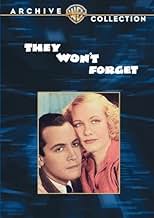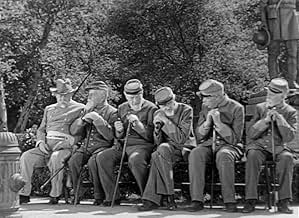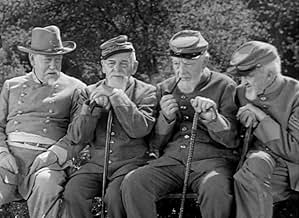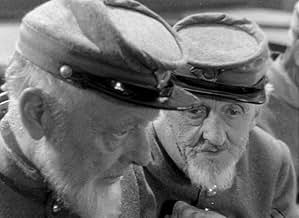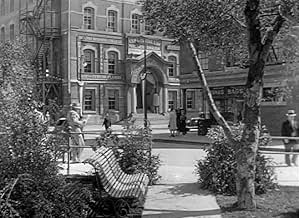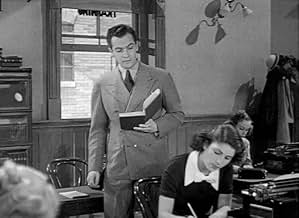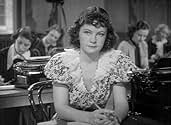A politically ambitious district attorney, unscrupulous tabloid journalists, and regional prejudice combine to charge a teacher with the murder of his student.A politically ambitious district attorney, unscrupulous tabloid journalists, and regional prejudice combine to charge a teacher with the murder of his student.A politically ambitious district attorney, unscrupulous tabloid journalists, and regional prejudice combine to charge a teacher with the murder of his student.
- Awards
- 1 win total
Elisabeth Risdon
- Mrs. Hale
- (as Elizabeth Risdon)
Sibyl Harris
- Mrs. Clay
- (as Sybil Harris)
- Director
- Writers
- All cast & crew
- Production, box office & more at IMDbPro
Storyline
Did you know
- TriviaThe novel "Death in the Deep South" and this movie version were based on the notorious murder trial and subsequent lynching of Leo Frank. The film mentions the suspect's Northern background, which was a factor in his lynching, but does not mention that he was Jewish. The real-life victim, Mary Phagan, was only 13 years old, a far cry from Lana Turner's 16-year-old "sweater girl."
- GoofsDuring the entire trial the shadow of the window is showing in the same place; behind the witness chair/over the back door of the courtroom.
- Quotes
Drugstore Clerk: What'll it all be be, ladies?
Imogene Mayfield: Dope and cherry, Fred.
Drugstore Clerk: [to Mary] How about you, half-pint?
Mary Clay: Make mine a chocolate malt and drop an egg in it as fresh as you are.
Drugstore Clerk: The hens don't lay 'em that good.
- ConnectionsFeatured in Hollywood and the Stars: The Angry Screen (1964)
- SoundtracksKingdom Coming
(1862) (uncredited)
aka "The Year of Jubilo"
Music by Henry Clay Work
Played during the opening credits
Featured review
"They Won't Forget" and neither will you if you've seen this chilling depression-era drama based on an actual murder case. Some of the scenes are so real, they're scary. One look at gimlet-eyed Trevor Bardette with a voice from the grave is like seeing death incarnate and enough to freeze a platoon of marines in their tracks. Then there's hapless Clinton Rosemon, his pleas for mercy so achingly real, they echo across generations of tormented black souls. Also not to be overlooked is the bereaved Gloria Dickson. Her righteous anger at movie's end is so heart-felt, I expect it probably was. Together with the wily District Attorney Claude Rains, there's an uncommon authority to this searing drama of justice gone wrong.
There's also an uncommon richness of detail. The script, for all its sprawl, remains tight and unrelenting, a genuine testament to writers Rossen and Kandel. Then too, producer Le Roy pulled out all the stops and the results show it. No one acts without apparent reason. Everyone has understandable motivations for doing what they do. That's why the upshot is so tragic. It's as though there's an on-rushing train nobody can stop because the momentum is carried by an infernal logic greater than the demands of justice. Despite appearances, it's not an anti-lynching film, though it is that. Rather, it's a down and dirty look at the cynical roots of injustice. From lowly pool hall to lofty city council, no one wants to convict an innocent man, but then no one much cares either. This movie stands as a fine example of why Warner Bros. was the studio of record during the stressed-out 1930's. Anyway, for guys who don't like the gloomy theme, there's always the chance to catch Lana Turner as she juggles two balloons while sashaying up the sidewalk in the film's most famous scene.
All in all-- a classic of 30's social realism, with Hollywood at its unapologetic best.
There's also an uncommon richness of detail. The script, for all its sprawl, remains tight and unrelenting, a genuine testament to writers Rossen and Kandel. Then too, producer Le Roy pulled out all the stops and the results show it. No one acts without apparent reason. Everyone has understandable motivations for doing what they do. That's why the upshot is so tragic. It's as though there's an on-rushing train nobody can stop because the momentum is carried by an infernal logic greater than the demands of justice. Despite appearances, it's not an anti-lynching film, though it is that. Rather, it's a down and dirty look at the cynical roots of injustice. From lowly pool hall to lofty city council, no one wants to convict an innocent man, but then no one much cares either. This movie stands as a fine example of why Warner Bros. was the studio of record during the stressed-out 1930's. Anyway, for guys who don't like the gloomy theme, there's always the chance to catch Lana Turner as she juggles two balloons while sashaying up the sidewalk in the film's most famous scene.
All in all-- a classic of 30's social realism, with Hollywood at its unapologetic best.
- dougdoepke
- Aug 12, 2007
- Permalink
- How long is They Won't Forget?Powered by Alexa
Details
- Runtime1 hour 35 minutes
- Color
- Sound mix
- Aspect ratio
- 1.37 : 1
Contribute to this page
Suggest an edit or add missing content



